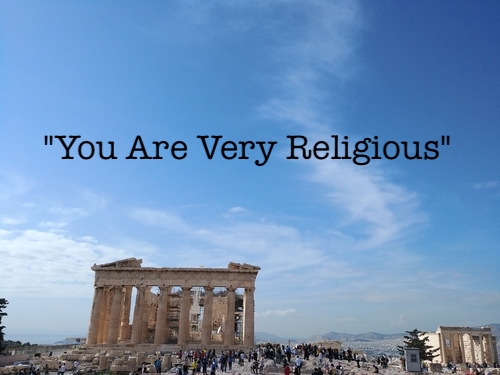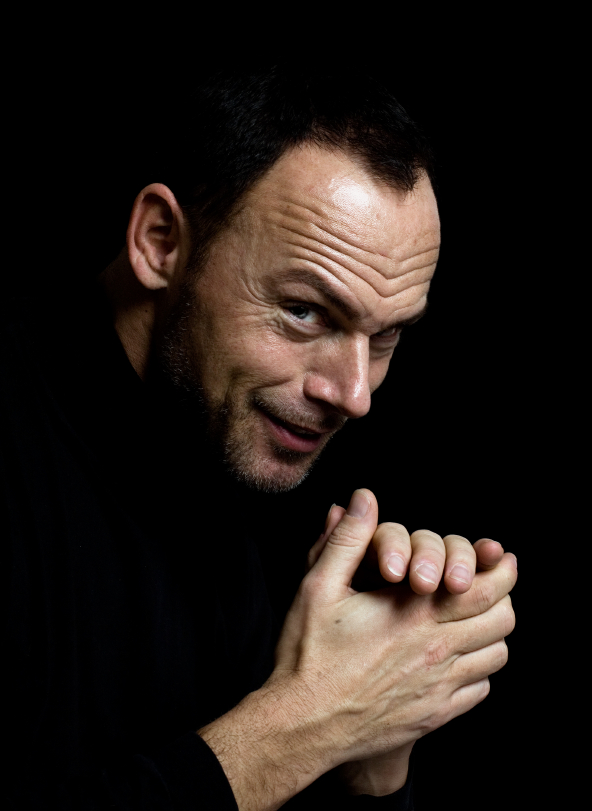 Christ is risen!
Christ is risen!
In the heady days of the Enlightenment in Europe, the elites and the educated were convinced humanity had turned a corner away from the silly superstitions of religion and towards the “mature” and “enlightened” attitudes of the materialistic world. Science would lead to a “Golden Age” of human reason, and all this silly talk of God and miracles and resurrections would be abandoned as we humans grew up from the childishness of religion.
The famous French philosopher, Voltaire, once said “A hundred years from my death the Bible will be a museum piece.” But a hundred years after his death in 1778 the French Bible Society set up its headquarters in Voltaire’s old house!
Now, society is tearing itself apart having seen the unintended consequences of “de-enchanting” the world through mere materialism. Two World Wars, a Holocaust, Depression, endless conflicts, both cold and hot, the breakdown of the nuclear family, chaos and confusion, an unprecedented rise in mental illnesses, and even the mutilation of human bodies to somehow appease the internal madness of our lost age, all scream the failure of the so-called Enlightenment to “cure” humanity. So, what’s the answer?
Well, it certainly isn’t simply being “religious.”
Look at our lesson today in Acts 17:19-28:
IN THOSE DAYS, the Athenians took hold of Paul and brought him to the Areopagos, saying, “May we know what this new teaching is which you present? For you bring some strange things to our ears; we wish to know therefore what these things mean.” Now all the Athenians and the foreigners who lived there spent their time in nothing except telling or hearing something new. So Paul, standing in the middle of the Areopagos, said: “Men of Athens, I perceive that in every way you are very religious. For as I passed along, and observed the objects of your worship, I found also an altar with this inscription, ‘To an unknown god.’ What therefore you worship as unknown, this I proclaim to you. The God who made the world and everything in it, being Lord of heaven and earth, does not live in shrines made by man, nor is he served by human hands, as though he needed anything, since he himself gives to all men life and breath and everything. And he made from one every nation of men to live on all the face of the earth, having determined allotted periods and the boundaries of their habitation, that they should seek God, in the hope that they might feel after him and find him. Yet he is not far from each one of us, for ‘In him we live and move and have our being.’
I love the way St. Luke describes Athens, Greece. Of course, at this time, Athens was still a pagan Greek city. The gods of the Greeks had temples all over the city with the towering Parthenon dedicated to the goddess Athena, the patroness of the City. Just a ways off from the Parthenon is a raised area called “Mars Hill.” This is where St. Paul preaches his first evangelical sermon to the pagan citizens of Athens.
Notice how Paul preaches to these Athenians:
First, he Praises them. St. Paul can see clearly that the citizens of Athens are very religious people. Of course, the term at the time merely meant observant of the worship of the gods. And Paul could tell this because these pagans wanted to make sure they covered their bases when it came to all the gods “out there.” Just in case they missed anyone, they erected an altar “To An Unknown god.” Paul grips this piety and tells these Greeks about the God they do not know! Of course, what could also be motivating these pagan Greeks is fear. If we don’t make sure all the gods are happy with us, we’ll be in trouble! That’s being very religious, too. But for all the wrong reasons.
Next, he Proclaims to them. Paul starts telling these polytheistic pagans that there is only One God, the Creator of heaven and earth, both seen and unseen! You see if we get this insight wrong, we’ll find ourselves worshipping “other” gods, other “things” that aren’t able to really give us life. They only become untamed passions that enslave us. In fact, idolatry is still one of the great dangers and weaknesses of a “too small” idea of religion and faith. We choose to worship smaller, lesser “gods” and expend all our energy trying to please the wrong “gods” in our lives. The key to true religion and true worship is the serious and humble admission that there is only one God and He wants to be known!
Finally, Paul does something unexpected, but he really wants to reach these people. And he knows how to do that. He quotes a hymn to Zeus! Did you see it? It’s at the very last part of the passage: “In him, we live and move and have our being.” That is a hymn to Zeus that Paul appropriates to reach these precious people with the Good News of the Orthodox Christian Faith! St. Paul expresses true religion and true love for his audience as he attempts to evangelize them. He uses a hymn to Zeus because he knows these “very religious” pagans will know the hymn! You see, even “too small” religious ideas can contain enough of the Truth to use to build a bridge for others so then y can come home to Christ!
St. Michael, the Confessor, Bishop of Synadon, is commemorated today. His story is a story of the price one must be willing to pay to hold to the fullness of the Faith. He and his brother both became monks in the early 9th century, and both men were so very dedicated to the Faith and practicing the Faith that they were both made bishops in the Church. St. Michael became the bishop of his hometown in Synadon and led the faithful there to a pious and godly Orthodox life. But the controversy over the place of icons erupted during his day and the Emperor Leo the V exiled the godly bishop for his insistence that the icons were not only educational but they held firm the mystery of the Incarnation by insisting the Faith be visible and not merely philosophical and mental. St. Michael died in exile after suffering many hardships for his strong support for true religion.
So, today, are you willing to be so aware of your surroundings that you can pluck things from the culture and turn them into invitations to Christ and His Church? Do you know enough about the Faith to be able to discern how to do this well? God loves everyone, and He is calling us to be so purposeful in our Orthodoxy that we can be wise enough to use what is before us to share this Faith with everyone!



